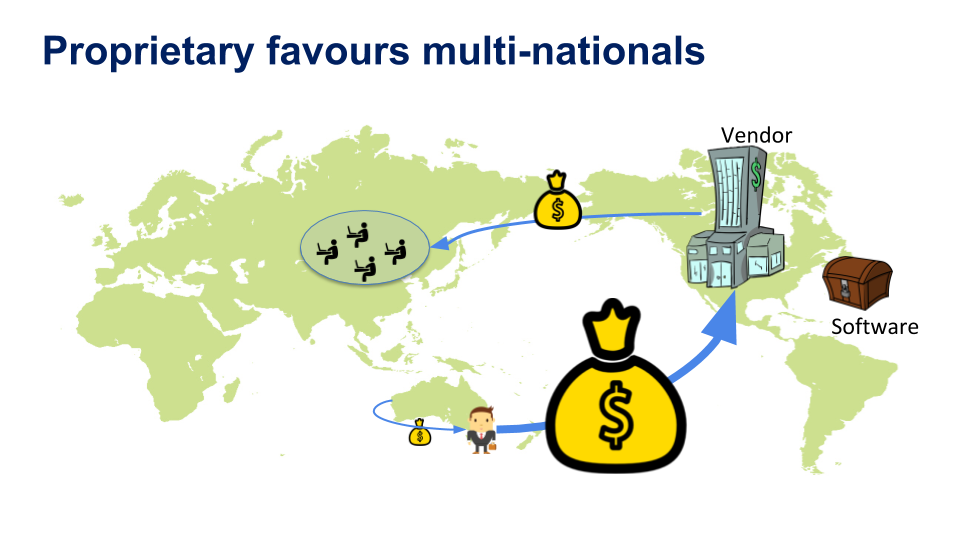Investing in the financial markets can be a lucrative endeavor, but it often requires substantial capital and expertise. This is where proprietary trading firms, or prop firms, come into play. Prop firms are companies that provide traders with access to capital and resources in exchange for a share of their profits.
But how do these firms actually make money? In this article, we will explore the various revenue streams of prop firms and shed light on their business model.
Understanding the Concept of Prop Firms
Proprietary trading firms, also known as prop firms, are financial institutions that use their own capital to directly invest in different financial instruments. Instead of relying on client funds, these firms recruit talented traders who trade on their behalf with the goal of generating profits.
Prop trading offers benefits for both traders and the firm. Traders gain access to significant capital and advanced trading technology, while prop firms benefit from the profits generated by successful traders.
These firms rely on various revenue streams such as commissions, market-making activities, and proprietary research services to generate income.
In summary, prop firms employ their own capital to trade financial instruments and recruit skilled traders to execute profitable trades. The combination of successful trading strategies and diverse revenue streams allows these firms to thrive in the dynamic landscape of financial markets.
Revenue Streams of Prop Firms
Prop firms generate revenue primarily through trading profits and market making. Skilled traders identify profitable opportunities in stocks, currencies, commodities, and derivatives to generate consistent returns. Market makers provide liquidity by quoting buy and sell prices, profiting from the spread between them.
Prop firms leverage their expertise to match buyers with sellers and earn revenue from transaction fees.
| Revenue Streams | Description |
|---|---|
| Trading Profits | Generated by skilled traders through profitable strategies |
| Market Making | Providing liquidity and profiting from the bid-ask spread |
| Liquidity Provision | Facilitating trade execution for revenue from fees |
Fees and Commissions: Additional Income Sources for Prop Firms
Proprietary trading firms, or prop firms, generate income through various fees and commissions charged to traders. These include trading desk fees, which cover operational costs like technology and office space. Profit sharing agreements allow traders to receive a percentage of their generated profits while the rest goes to the firm.
Performance fees may also be charged based on a trader’s profitability over time, incentivizing consistent positive returns. These additional sources of income ensure prop firms have stable revenue streams and create a mutually beneficial relationship between the firm and its traders.
Market Data and Research Services: Providing Valuable Information for a Fee
Proprietary trading firms offer market data and research services to external parties for a fee. These services range from basic data packages, including real-time price quotes and news feeds, to more advanced research reports and analysis.
By monetizing their expertise, prop firms generate additional revenue while strengthening their reputation as industry experts. These services contribute to the growth and efficiency of the financial industry by sharing valuable market insights with other participants.
Risk Management Services: Mitigating Market Risks for Clients
Prop firms are experts in managing risk, an essential aspect of successful trading. They utilize advanced systems and methodologies to identify and reduce potential market risks.
Recognizing the value of their expertise, prop firms offer risk management services to external clients. These services include portfolio analysis, hedging strategies, and customized solutions tailored to the specific needs of investors or institutions.
By providing risk management services, prop firms not only generate additional income but also establish themselves as trusted partners for clients navigating volatile financial markets.
They help clients make informed decisions through portfolio analysis, protect investments with strategic hedging techniques, and develop customized solutions for unique objectives.
Overall, prop firms’ risk management services empower clients to navigate the complexities of markets with confidence and achieve their investment goals effectively.
Technology Licensing: Licensing Proprietary Software to External Parties
Proprietary trading firms develop advanced trading software tailored to their strategies. To leverage their advantage, some firms license this software to hedge funds and financial institutions, creating an additional revenue stream. Through licensing, external parties gain access to cutting-edge tools, improving their trading capabilities.
This strategy also allows prop firms to establish partnerships and contribute to industry growth. Legal frameworks ensure fair arrangements and protect intellectual property rights. Technology licensing is an effective way for prop firms to monetize their expertise and solidify their position as technological leaders in the market.
Trading Education and Training Programs: Charging Fees for Educational Programs
Trading education and training programs offered by prop firms have become a popular way for aspiring traders to learn from experienced professionals. These courses cover technical analysis, fundamental analysis, risk management, and psychology.
By charging fees for these programs, prop firms monetize their knowledge while helping traders develop the skills necessary for success in the financial markets. The courses provide practical insights, structured curriculum, and emphasize risk management and psychology to equip participants with the tools needed to make informed trading decisions.
Conclusion
[lyte id=’e8EI2Jkvpuo’]







